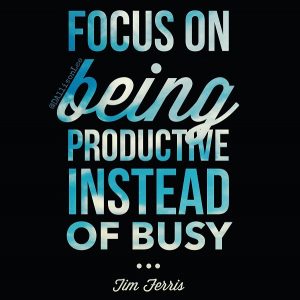America is the land of opportunity, and most Americans are realizing the importance of shopping locally and being loyal to small businesses. That being said, there’s also a huge amount of competition. There are nearly 28 million small businesses in the U.S. alone, accounting for 54% of sales in the nation.
Naturally, launching a small business is a big risk and can be downright scary. This post will cover things small business owners should keep in mind, especially when it comes to marketing. Focusing on customer relations, embracing your status as a small company, and really, really getting to know your brand personality are all key considerations.
Build Relationships That Matter
As a small business owner, you have plenty of opportunity to connect with your customers. That’s something most corporate enterprises can only dream about. Taking the time to build trusting, lasting relationships is one of the best things you can do for your business. And if you’re a small operation, it’s beneficial and critical. So how do you do it?
Communicate with your customers. If you get a complaint or inquiry, address it immediately. Do everything in your earthly power to resolve complaints, and give constructive answers to questions.
If you get a complaint via social media, comment back, and send a personal message. If you get a lot of questions regarding a certain product or service, why not create an FAQ page or blog post? Show your customers that you really care about them, and they’ll have no problem recommending you to their friends.
A Real Life Example of Excellent Customer Service
I discovered a boutique clothing store a few years ago. It’s a small company and located on the other side of the country from where I live. I was trying to buy a dress I really liked, but was unsure about what size I should get. I called customer service, and the woman on the other end said they were going to have a meeting to decide what size would fit me. Yes, they actually had a meeting about it.
I gave her my measurements, and after giving me a compliment on my figure (which every woman can appreciate), she found a girl in her office with the same measurements and had her try on the two different sizes. She called me back within an hour and told me which size to order. When the dress arrived, it fit perfectly. Not only did I end up spending hundreds of dollars on their clothing over the next few years, I also posted about them on social media and recommended them to everyone I knew.
The point is, being a smaller business gives you a significant advantage over larger businesses that tend to look at their customers as numbers rather than people. Milk that personal touch for everything it’s worth.
Don’t Be Afraid to Show Your Roots
You should be stinkin’ proud of your small business! You probably worked very hard to get it off the ground and running. Maybe you even used the last of your savings to get it started. You need to brag about that. We live in a digital society, and while that’s opened a lot of opportunity for businesses and consumers, it has also led to a bit of an emotional disconnect.
Consumers naturally turn to brands that know how to tell a good story. They want to feel like they’re buying from an actual person. What types of roadblocks have you encountered throughout your journey? What did you do to overcome them? If you can tell an entertaining and emotional story about your business, by all means do it! People want to hear real stories of struggle and success; it’s what inspires us to fulfill our own dreams.
How One Woman Turned Her Struggle Into Success
Consider the story of Joy Mangano, who many people probably know now since the release of the biopic starring Jennifer Lawrence. She invented the self-wringing “Miracle Mop” using upwards of $ 100,000 in savings and borrowed money. QVC picked it up and advertised it using one of its salesmen, and it didn’t do very well at first.
When Joy suggested she go on air and sell it herself, she sold more than 18,000 mops in less than half an hour. Why? Because people saw the emotion in her face and heard it in her voice. They saw the blood, sweat, and tears she put into creating the product. Of course, it was an innovative product to begin with, but it was just a plastic mop without Joy’s story behind it.
The story of your business probably has a lot of similarities to Joy’s, and you shouldn’t hide that. Make your story part of your brand story. It will make the brand feel more personable and valuable to consumers, and they’ll feel like they’re doing a good deed by supporting you.
Engage With and Give Back to Your Community
Start being more active in the community around you! Your community will likely be a cornerstone for your business, so why not support them right back? Make samples of your products and give them out at stores. Create a pamphlet about your services, and ask to leave them in coffee shops. Go to other businesses (not competitors) and give out freebies like notepads, pens, or something else people will find useful.
If you can donate time or money to a local charity or cause, that’s a fantastic way to give back to the community. Think about what types of charities your customers care about, and work with them. Engaging with locals is good for the community, and it’s an unbeatable networking opportunity. You’ll most likely meet other small business owners you can join forces with along the way. Who knows? You might end up forming very lucrative partnerships.
To all the small businesses out there: Cheers! Be proud of who you are and how far you’ve come. Don’t let the big corporations intimidate you, and keep on living the American dream.
Business & Finance Articles on Business 2 Community(48)
Report Post



